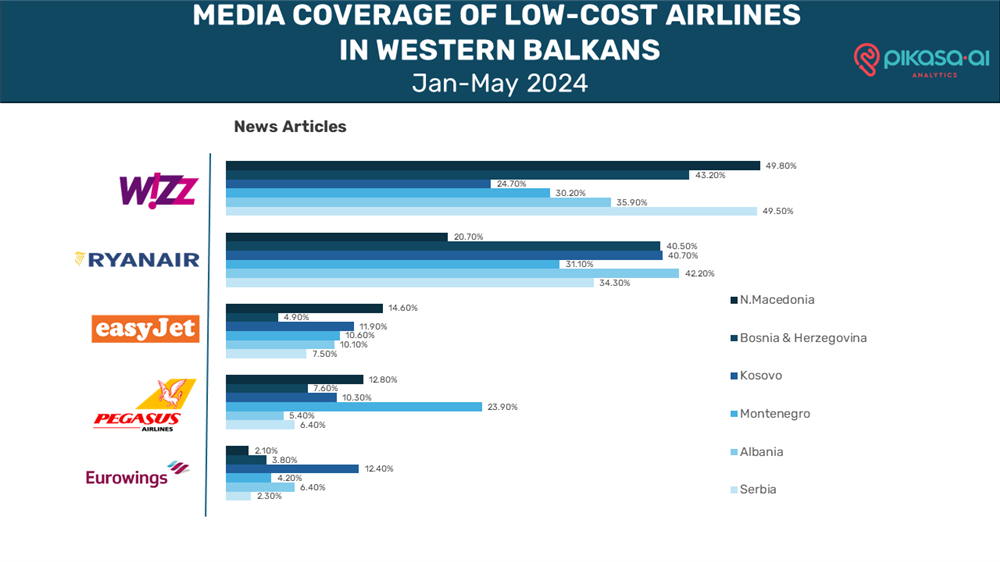Of the news articles mentioning low-cost airlines, 70% are informative, providing general updates and developments about the airlines' activities. These articles often highlight new routes, changes in flight schedules, promotions, and the overall impact of these airlines on the travel industry and local economies. They serve to inform the public about the latest happenings and advancements within the low-cost airline sector.
The remaining 30% of the news articles focus on various issues and events related to the airlines' operations. This includes reports on troubles during flights, such as delays, cancellations, and in-flight incidents. Additionally, there is significant coverage of criticism directed at company policies, including customer service complaints, baggage fee controversies, and other operational challenges. These articles also cover various events such as strikes, regulatory changes, and significant company announcements that might affect passengers. Together, these reports provide a comprehensive view of the low-cost airline industry, balancing both positive developments and areas of concern.

Pikasa, a Data Analytics company specializing in monitoring digital media, analyzed media outlets in Western Balkan countries from January to May 2024. We used our real-time data platform, analytics.live, to gather and analyze data.
In North Macedonia, 50% of the news about low-cost airlines is focused on Wizz Air, the country's primary and most well-known airline. Despite Ryanair not operating in this market, there are still reports about their flights globally. Additionally, a significant number of articles cover Pegasus and EasyJet, often mentioning their charter flights from Skopje and Ohrid airports.
In Bosnia, nearly 85% of the news coverage is about Wizz Air and Ryanair. Wizz Air is frequently mentioned due to its reduction of flights to many destinations, while Ryanair receives attention for introducing new routes from Sarajevo. Other airlines are mostly mentioned sporadically for individual flights.
In Kosovo, the most mentioned low-cost airline is Ryanair, even though the airline does not operate within the Kosovan market. This frequent mention is largely due to the close relations between Kosovo and Albania. Media outlets in Kosovo often post news about Albanian aviation, reflecting the strong cultural and economic ties between the two countries. As a result, developments in the Albanian aviation sector, including news about airlines like Ryanair that operate in Albania, receive significant attention in Kosovan media.
In Montenegro, Wizz Air and Ryanair receive approximately the same amount of media coverage, as they are often mentioned together in articles about new flight routes. Additionally, a significant number of news articles focus on Pegasus Airlines, particularly regarding the new direct routes from Montenegro to Ankara and Izmir.
Nearly 80% of the news articles related to low-cost airlines in Albania cover the main competitors, Wizz Air and Ryanair. The majority of these articles are informative, focusing on the latest activities of the airlines and highlighting positive news about their economic impact on the local population. Additionally, there is coverage of sporadic incidents during flights, including delays, but these make up a smaller portion of the overall news.
In Serbian media outlets, Wizz Air has garnered the most news coverage, primarily due to an incident involving the death of a British passenger, which resulted in an emergency landing at Belgrade Airport. Additionally, there has been significant reporting on Wizz Air's reduction of flights from Niš Airport to various destinations. Ryanair has been notably covered for increasing ticket prices by 10%. Other low-cost airlines are mentioned in general news, without specific situations or detailed coverage.